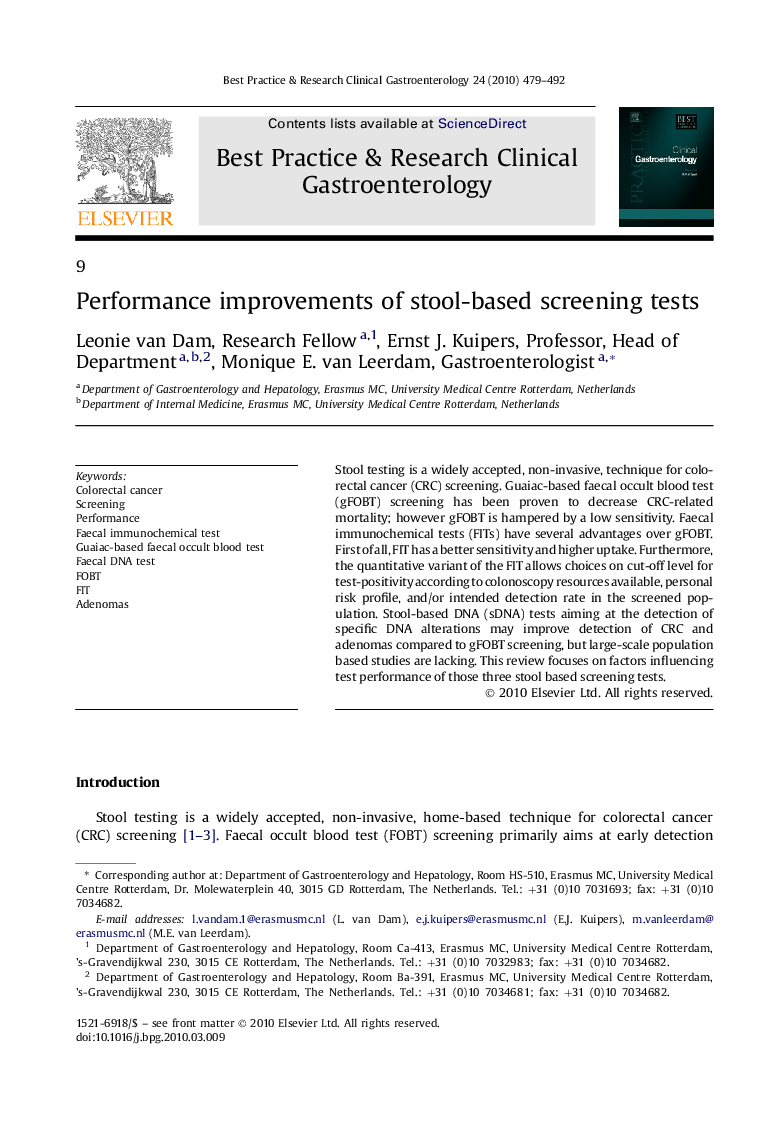| Article ID | Journal | Published Year | Pages | File Type |
|---|---|---|---|---|
| 3254364 | Best Practice & Research Clinical Gastroenterology | 2010 | 14 Pages |
Stool testing is a widely accepted, non-invasive, technique for colorectal cancer (CRC) screening. Guaiac-based faecal occult blood test (gFOBT) screening has been proven to decrease CRC-related mortality; however gFOBT is hampered by a low sensitivity. Faecal immunochemical tests (FITs) have several advantages over gFOBT. First of all, FIT has a better sensitivity and higher uptake. Furthermore, the quantitative variant of the FIT allows choices on cut-off level for test-positivity according to colonoscopy resources available, personal risk profile, and/or intended detection rate in the screened population. Stool-based DNA (sDNA) tests aiming at the detection of specific DNA alterations may improve detection of CRC and adenomas compared to gFOBT screening, but large-scale population based studies are lacking. This review focuses on factors influencing test performance of those three stool based screening tests.
